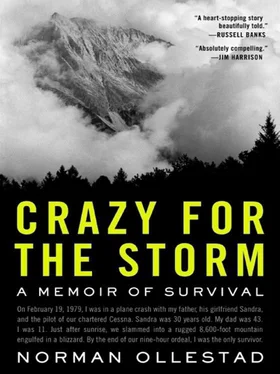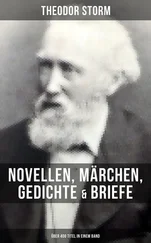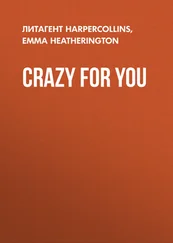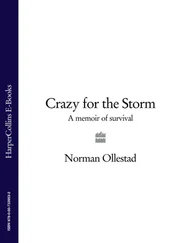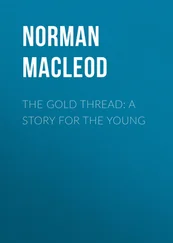On Dad’s first day as an agent he couldn’t understand why all the veteran agents picked the most beat-up FBI cars from the garage, even though they were unreliable in a chase and the radios didn’t work. He learned that Hoover’s policy stated that if any agent damaged an FBI vehicle in any way, even in a chase, he would have to pay for it out of his own pocket. Hoover’s policy kept insurance costs way down and allowed Hoover to brag to the congressional Ways and Means Committee that he was saving tens of thousands in taxpayer dollars. A few weeks later Dad realized that Hoover was assigning a disproportionate amount of agents to finding stolen cars. He figured out that Hoover did this to inflate the FBI’s statistics, counting retrieved stolen cars—without actually apprehending a suspect—as another crime solved by the FBI .
The hypocrisy and inefficiency drove my dad crazy—What about catching criminals? he kept protesting. After ten months he was completely disillusioned with the FBI. Two incidents amplified his frustration. He found out that there were agents in each of the fifty-two field offices across the United States whose only job was to sit around and watch TV, listen to the radio and read the newspapers looking for any mention of Hoover, which was then immediately reported to Hoover’s loyal lieutenants, who investigated the perpetrators. This discovery coincided with the firing of Agent Carter. Carter was caught alone with a girl, which was against FBI policy—regardless of the fact that the girl in question was Carter’s fiancée. Then two of Carter’s colleagues were fired for failing to report Carter’s improper relations with his fiancée. Dad concluded that fighting crime was not as important to Hoover as imposing his personal views on the agents that worked for him, so he resigned.
Mom said he was so disappointed by the way Hoover ran the FBI that he didn’t care what would happen to him if he wrote the book. It was before Watergate, she said. Most people didn’t believe that Hoover could be bad. After Inside the FBI was published they tapped our phones, printed false newspaper articles about your dad, basically tried to ruin his reputation, said Mom. The book came out the year you were born. It was pretty scary, wondering if Norm was going to get arrested on some made-up charge, or put in jail for being a Communist or something. He was harassed not only by Hoover himself but by a famous TV personality named Joe Pine, who invited Dad onto his nationally acclaimed show. During the show Joe Pine accused my dad of being a KGB agent, and brought an alleged KGB double agent onto the stage. The agent, big and burly, confronted my dad, which nearly ended in a brawl between them outside the studio. Mom said that Hoover was completely stunned by my dad’s audacity—how could this nobody challenge Hoover’s integrity when even the president of the United States and Congress wouldn’t dare? So Hoover hit him hard.
I studied my dad driving the truck. I thought about his notorious FBI informant Murph the Surf, who used to meet my dad out in the warm Miami surf to exchange information, and years later was busted for stealing the Star of India sapphire. Murph introduced Dad to a beautiful girl that he really fell for. But she was the daughter of a high-ranking mafioso, and when the FBI found out that Dad was sleeping with her, and not just doing surveillance like he had claimed, he had to let her go.
Dad’s fingers tapped the steering wheel. I imagined him hanging out with ruthless criminals, sleeping with a mafioso’s daughter, then defying Hoover and enduring the assault that followed—dangerous shit. It seemed odd that nobody on Topanga Beach was all that impressed by it. And I realized that no matter who you were, or what extraordinary accomplishments you made, Topanga Beach was always bigger than you. All that mattered there was surfing. It was the great equalizer. I think Dad loved the purity and simplicity of that.
Up ahead there were pastel-colored buildings and my dad announced that we were entering the town of San Vicente.
We ate lunch at a restaurant off the highway. He looked sad and I wondered if it was because of Sandra. The porch faced the dirt road where we had parked the truck. We ate under a trellis and during the entire lunch my dad’s face was sliced in two by the shadow of one of the overhead slats. One of his eyes was lit and the other was dark. It was the first time that he ever seemed guarded, secretive to me. There was no way to know what he was thinking or feeling. I wondered if that’s what had bothered my mom so much.
Let’s go, I said, wanting to get him into the full light of day again.
The blacktop quivered in the heat and the world was dead and dried out all around us. We drank mineral water and ate peanuts and tossed the shells out the window. Our only jubilant moments came when we had a farting contest. My dad won. Later we squatted and shit in the sagebrush and my dad told me to watch out for rattlesnakes, and then I couldn’t go and I was doubled over with a stomachache until we stopped at some town by the water and I used a restaurant bathroom.
After relieving myself I found my dad on the beach playing guitar and singing Heart of Gold to three Mexican girls. They were dressed for winter, I thought, and one of them walked right into the ocean with all her clothes on and took a swim. They did that in Vallarta too and I wondered why they didn’t wear bathing suits.
A couple of mean-looking guys came out of the bar and stared at my dad and the girls. My dad played on like they weren’t there staring at him. One of the guys with a sunburn over his brown skin called out to my dad in Spanish and I recognized the word gringo and my dad glanced over at him, his eye bone hooking around and setting his eyeball deep in the socket.
The guy scoffed at my dad. My fingers tingled and I was anxious. The sunburned guy approached my dad and my throat closed. My dad said something to him in Spanish and it took the man by surprise. He didn’t speak for a moment and then he said something back. My dad smiled and began playing a Mexican song and sang in Spanish, and some more people came out of the bar and the sunburned guy gestured toward my dad as if he had arranged this little concert with his old gringo buddy.
I walked over and sat next to my dad. Between songs I told him I wanted to go. After my second request he glanced at the ocean.
Yeah. No waves around here. Gotta review the map, he said.
We checked into a cinder block motel and my dad paid the elderly clerk to watch the truck. We parked it in front of our room and kept the yellow curtain open. My dad looked over the map. The red circles indicated a good surf spot he had heard about.
Apparently we’ll pass a few tomorrow, he said.
The road cut through shades of gray and as the dawn gave way the dirt turned more golden. Cacti posed like stoic cowboys with the sun still behind the sharp ridges. Nothing but cactus and bush could live out here. It was going to be hot and dusty in a couple of hours and we would spend another day baking in the truck, sticking to the seat, hoping for the air coming through the window to be cool but tasting the dust and slumping there like zombies. I daydreamed about snow, cool and fresh on my face, turning to water on my tongue. I would have given anything to turn back the clock to winter.
Just eight months ago my dad and I had ridden the single-chair chairlift up the face of Mount Waterman. It took an hour and a half to drive his little white Porsche there from Topanga Beach. It was snowing and my dad didn’t stop to put on chains because he wanted us to get the first chair and find untracked powder.
The lifty put a blanket over me as I sat on the wet seat and I glided up the slope into the driving snow. I was warm beneath my parka but my face was frozen. I thought about my friend Bobby Citron’s birthday party and eating chocolate cake and I hoped I wouldn’t miss the party.
Читать дальше
